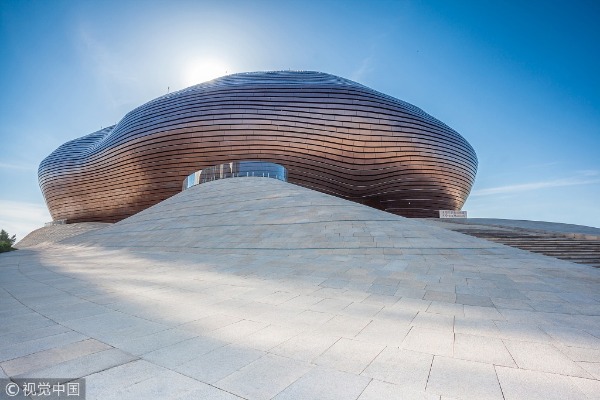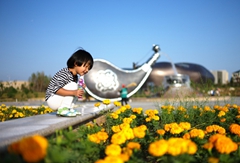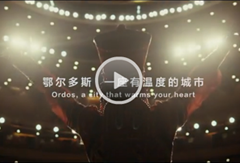Ordos Museum
Updated: 2020-01-14  Print
Print 



Ordos Museum
鄂尔多斯博物馆
Address: 5 Wenhuaxilunan, Kangbashi New District, Ordos, Inner Mongolia Autonomous Region
Hours: 9:00 - 17:00
Closed Mondays (except for national holidays)
E-mail: ordosmuseum@sohu.com
Admission fee: for free (passport required for entry)
Group ticket reservation: (+86-477)8390880

[Photo/VCG]
Designed in the shape of a weathered boulder, or a yurt, the Ordos Museum, which was opened in 2012, is enriched with a convergence of naturalistic interiors bathed in light. The result is a timeless piece of architecture in a modern and dynamic city.
While the durable surface of the building functions as a metal container protecting the interior from the region's harsh winters and frequent sandstorms, metaphorically the building's shape operates as a shield protecting the precious culture and history of the city. The museum appears to float over a wavy sand hill, a gesture saluting the landscapes which have now been supplanted by the streets and buildings of the new cityscape. The museum is now a favorite with locals who gather with their families and friends to explore, play or lounge in its pleasant environment.
Permanent exhibitions feature the history of Ordos, the cultural development of the Mongolian ethnic groups in the city, and fossils of animals and plants discovered in the region, elaborating on the transformation of the natural environment and the development of human society in the area.
The museum's interior presents a strong contrast to the exterior: an airy monumental cave flushed with natural light beaming in through skylights. The cave links to a canyon which carves out a void between the galleries and exhibition hall and is brightly illuminated at the top. Patrons maneuver along the base of these primitive surroundings and through the light across mid-air tectonic bridges, reminiscent of the intersection of the past and the future of the grassland landscape. Visitors repeatedly cross these sky bridges to reflect upon their journey from a variety of picturesque vantages.
The museum provides local residents with a place to reflect upon the fast-paced development of their city. People meet in the naturalistic, organic landscapes of the museum, an intersection of natural and human development.





 Ordos Impression
Ordos Impression Ordos WeChat
Ordos WeChat Ordos Reported
Ordos Reported


